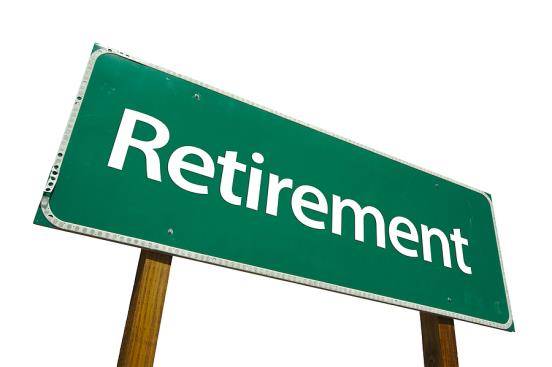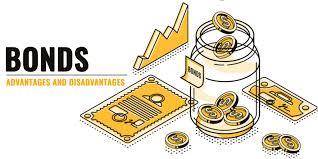Wall Street Reforms For Sustainability

“Improving America’s investment system is
vital to achieving success with sustainability
and environmental protection.”
Henry W. Clearsky
sustainabilityforlife.com
Note: Communicating this information as news to others is free of charge. 2
Follow this link for a printable .PDF version of this information
“Improving America’s investment system is
vital to achieving success with sustainability
and environmental protection.”
Henry W. Clearsky
sustainabilityforlife.com
Note: Communicating this information as news to others is free of charge.
2
Follow this link for a printable .PDF version of this information
Topics
A. Introduction
B. Individual Retirement Accounts (IRAs) - Reform
C. Stock Reforms (Exchange Traded Funds, ETFs)
D. Corporate Bond Reform
E. Municipal Bonds
F. Reduce Conflict of Interest
G. Summary

A1. Introduction

- This document is about a re-invention of the American investment system.
- It is about giving back ownership of the investment system (and equal power) to individual American citizens, where it belongs.
- The focus is on American’s regular investment dollars (stocks and bonds), in taxable brokerage accounts and retirement accounts.
- Banks, Savings, Checking, CDs, Loans and Mortgages are not the focus of this document.
- There are also other investments, real estate, investment management companies, etc.. not included in this discussion.
A2. Important Investment History

- The New York and Philadelphia stock exchanges go back 200+ years.
- Options investments (speculation) for commodities (bulk products, like crops, etc.. have existed for 200+ years. This has become an important aspect of raising and selling farm products, and other bulk products.
- The first American corporate pension plan was created by the American Express Company in 1875, and thousands of companies have followed suit.
- The first stock option exchange opened in Chicago in 1973, and investors could formally speculate on whether a stock would go up or down in price (hedging).
- The deferred-tax 401k plan system for employees retirement savings was passed into law in 1978. Millions of such individual plans have been created.
- The problem: Manipulation and chronic high costs are now ingrained in the system.
A3. More Money Is Needed for Environmental Protection
- Premise: Americans need more money to invest in pollution reduction in their personal, family and business lives… where will this money come from?
- Answer: Stop allowing Wall Street to “shear” Americans like sheep with
inappropriately high fees and costs within the financial system. - The system was set up years ago to support an industry employing millions of highly paid professionals. Many of those jobs are not really needed.
- Americans aspire to “white-collar” jobs in offices because there is financial security, personal prestige, and stability for their families. However, many wasteful aspects of the system have been created to fulfill the “need” for too many of these white-collar jobs. This is not necessary.

A4. A New Investment System for a Sustainable Future


B1. IRAs - Convert ALL Retirement Accounts to IRAs

B2. IRAs - Investment Choices
B3. IRAs - Additional Improvements


C1. Stock Reforms - Understand Stock versus Bond Financial Security
This should not be changed, but every American citizen should understand the rules.
IMPORTANT FINANCIAL ASPECT OF STOCKS-BONDS. Wealthy investors, institutional investors, investment banks and financial experts are all aware.
This system should be improved so that individual
corporate bonds are easier for any investor to purchase.
C2. Stock Reforms - General
• Eliminate the “casino” aspects of investing; give individual investors equal power compared to billionaires, hedge funds and institutional investors.
• Betting on a stock going up or down invites manipulation and fraud. Calls, puts or shorting of stocks should be banned by law.
• Eliminate the use of “warrants” which can be later converted to stock.
• Do not allow any corporate debt to be converted to stock at the future date.
• For each stock, the communicated “actual outstanding shares” and “shares
registered for later sale” will always be accurate and updated every business day.
• The above changes would eliminate manipulation, unnecessary jobs and lower costs.


C3. Stock Reforms - ETFs versus Mutual Funds
D1. Corporate Bond Reform – System Description


D2. Corporate Bond Reform – Mutual Funds versus ETFs
D3. Corporate Bond Reform – Investor Sustainability Information
- For individual bonds and Bond ETFs, there should be clear identification whether the investment is free of alcohol, tobacco, cannabis, gambling, or fossil fuel.
- For individual bonds and Bond ETFs, there should be clear identification that the investment is recognized as environmentally friendly and/or leading-edge ecofriendly technology.
- This allows investors to make choices in alignment with their principles and values.


D4. Corporate Bond Reform – Individual Corporate Bonds
- For brokerage firms, all investors should be able to purchase individual corporate bonds for their IRA.
- Rules should limit the bonds from one company to be no more than 10% of the IRA.
- Lists of bonds available to be purchased should be readily accessible on-line via any investor’s brokerage account. Ability to sell a bond should also be provided. (same functionality as stocks)
- The practice of clearly identifying the bond ratings for investors will continue.
- Each bond will clearly identify on-line whether the bond is senior unsecured (lower risk) or subordinate (pays higher interest rate due to higher risk).
- The on-line lists will clearly show the % of each company’s bonds that are senior unsecured versus subordinate.
- SEC regulation will limit the % of any company’s bonds that can be senior unsecured to a maximum of 65%.
- Bond transaction fees will not be hidden, and very clearly communicated.
D5. Corporate Bond Reform – Individual Corporate Bonds, Calls
- Having Bond Call provisions (company takes back the bond before maturity date and pays Par) gives the power to the company, not the investor.
- If a company wants financial flexibility then they should issue bonds that have a range of maturity dates.
- All general bond call provisions should be are banned. (bankruptcy and force majeure rules will still apply).
- Bond calls are an example of unnecessary complexity.
- The system should favor the bond investors.


E1. Municipal Bonds and IRAs
- Municipal Bonds are issued by cities, counties, school districts and other government organizations.
- The coupon interest earned from these Bonds is tax-free under IRS rules.
- Therefore municipal bonds generally pay a lower interest (coupon) rate compared to corporate bonds, but there is a tax savings on the earnings.
- So, municipal bonds are advantageous for regular taxable accounts, not IRAs. IRAs are already tax-deferred.
- Municipal bonds generally do not impact IRA investments.
- Note: Call provisions for municipal bonds should also be banned.
F1. Reduce Corporate Conflict of Interest
- For decades, Corporate Boards of Directors have been able to set their own salaries, and the salary of the Chief Executive Officer, with minimal SEC checks and balances.
- This has allowed them to pay “golden parachutes” to executives even when the executives’ actions financially harm the company.
- New laws should place limits on executive pay, and limit “golden parachutes”. This is especially true when a company is struggling financially.
- History shows executives financially harm their company with their decisions some of the time. Why should their pay be so high?
- Only if a company is clearly prospering, and employees and stockholders are prospering, should executive pay be higher than normal.


F2. Reduce Investment Conflict of Interest
- For decades, Individuals, Banks, Brokerage Firms and other organizations that buy and sell stocks, bonds, mutual funds and ETFs have been allowed to issue press releases on which stock they think will go up or down in the future. Seriously?
- This invites manipulation and this activity should be banned by law.
- A new role certified by the SEC should be created: a “Certified Independent Stock/Bond Analyst”, and this may ultimately be split to two roles.
- “Independent” means that person does NOT work for any company that buys and sells stocks/bonds, AND that person has turned over all of their investment wealth to a blind trust… i.e.. They have no idea how their recommendations will impact their personal investments.
- They also will not be allowed to accept direct financial payments from any individual or company that buys and sells stocks/bonds.
- This new role would be a help to all investors.
G1. Summary - Why Highlight Sustainability for Stocks and Bonds?
- Due to 40+ years for global and national foot-dragging, the planetary environmental crisis is now massive, and threatens the survival of the human race on planet Earth.
- The environmental danger is documented within the sustainabilityforlife.com website. The danger is real; our children and grand-children will suffer mightily.
- Therefore, identification of environmental impact (sustainability) measures for stocks and bonds is vitally important for investors.


G2. Summary - Investment System Reform
- The entire system should be simpler and clearer to the average investor.
- All pensions and 401ks should be converted to individual IRAs, and no new pensions or 401ks should be allowed.
- All mutual funds should be converted to ETFs.
- Buying and selling individual bonds should be simplified.
- A broad range of investment choices should be available for each IRA
- Corporate and Investment conflict of interest should be eliminated.
- The effectiveness and power of each individual investor should be increased.
